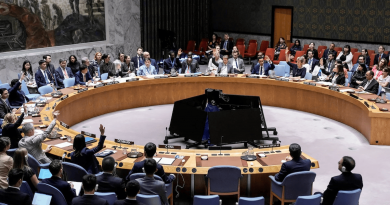Suu Kyi tells U.N.’s top court charge of Rohingya genocide is “misleading”
The Hague (Reuters) – Myanmar leader Aung San Suu Kyi on Wednesday rejected accusations of genocide committed against her country’s Muslim Rohingya minority as “incomplete and misleading”, and said the case should not be heard by the U.N.’s highest court.
The Nobel Peace laureate, speaking during three days of hearings at the International Court of Justice, challenged allegations in a lawsuit brought by Gambia last month accusing Myanmar of violating the 1948 Genocide Convention.
Suu Kyi, once feted in the West as a heroine of democracy, spoke for about 30 minutes at the courtroom in The Hague in defence of the actions of the Myanmar military that for years had kept her under house arrest.
She said a military-led “clearance operation” in western Rakhine State launched in August 2017 was a counterterrorism response to coordinated Rohingya militant attacks against dozens of police stations.
“Gambia has placed an incomplete and misleading picture of the factual situation in Rakhine state in Myanmar,” she said.
More than 730,000 Rohingya fled Myanmar to Bangladesh after the military launched its crackdown. United Nations investigators have said 10,000 people may have been killed.
Rights groups said Suu Kyi’s statement contradicted evidence on the ground and witness accounts. Her remarks “fly in the face of all the evidence gathered by the UN, and the testimony our own teams have heard from countless survivors,” said George Graham, director of humanitarian advocacy at Save the Children.
Gambia has argued it is every country’s duty under the convention to prevent a genocide from taking place, or to punish those responsible.



